Alternative Drug Rehab Therapies
Learning new techniques to treat addiction
At Searidge Drug Rehab we believe that it is not only psychotherapy and pharmacotherapy that leads to recovery- a more holistic and realistic approach is important. For this reason in addition to our conventional treatments we offer a variety of alternative therapies. These therapies complement our clinical treatments by targeting the physical, mental and social aspects of recovery.
These alternative therapies provide our residents with very important coping skills and techniques that prepare them for the challenges of life outside Searidge Drug Rehab. The techniques enable a greater awareness and control over thought processes, and provide excellent means for coping with stress.
Relaxation therapy helps residents to relieve stress and significantly improve their quality of sleep. This therapy emphasises learning to focus the mind and relax the body. This practice gives recovering addicts the rest and rejuvenation of the mind, body and soul. Becoming skilled at inducing this relaxed state is a very useful recovery tool.
As a small drug rehab, we are able to offer some flexibility in our addiction treatments. For example, if a resident is drawn to the 12-step program, we can arrange to bring them to the local AA or NA meetings.
another approach to wellness
Journaling
Journaling is a powerful recovery tool for drug addiction treatment. By tapping into goals, experiences, thoughts and feelings through the act of writing it is possible to gain a greater self-awareness that equips residents for recovery. This is a safe space for residents to express themselves and release their thoughts onto paper without the worry of hurting others or themselves.
Journals are a means to keep track of the journey to recovery and personal growth. When it’s hard to know where to turn, your journal can help guide you through difficult decisions. A journal presents an accepting and non-judgmental friend and counsellor in drug addiction treatment.
Mindfulness
This is the practice of stabilising and calming the mind in a peaceful setting. Continual practice of this technique aids residents to control what they are thinking about and eliminate distraction. This focused concentration involves the parts of the brain that regulate learning and memory, emotion, sense of self and perspective. Exercising these regions is important for the recovering addict, as abuse causes these areas to degenerate, and rebuilding them is a main aspect of recovery.
Creative Art Therapy
Creative Art Therapy is a form of psychotherapy that is conducted primarily with various artistic mediums. Our trained and experienced art therapists at Searidge Drug Rehab guide residents through the therapy by working with a wide variety of media such as painting, drama, sculpture, music and photography.
The process of creative expression allows residents to delve into and resolve conflicts, reduce stress, boost self-esteem and awareness, manage behaviour and develop skills in personal expression, all of can be affected adversely by drug addiction. This is not an art class or recreation, although the creative aspect of this therapy can be appealing to some residents.
Yoga
In yogic practice, addiction is seen as an imbalance in an individual’s mind, body and spirit. The practice of yoga consists of physical poses, breathing techniques and meditation, all of which target these three areas. The physical poses of yoga heal the body by detoxification and exercise. The breathing techniques lead to tranquillity that calms the troubled minds of those in recovery. The spirit is healed by the emphasis on unconditional relationships and an overall connection with the greater world.
The practice of yoga promotes a calm alertness that helps cultivate greater discipline, self-esteem and clarity of mind: all important skills for a recovering addict to develop. Yoga has also been proven to alleviate the symptoms of a number of disorders often associated with substance abuse such as depression and anxiety.
The variety in our program allows residents to discover for themselves which of these activities appeal to them, work best with their abilities, and will support them the most in their personal addiction recovery. In order to accommodate every stage of recovery and physical ability all physical therapy sessions at Searidge are multileveled. At every level, participants will reap benefits, improve flexibility, strength, posture, and breathing; lowers blood pressure and heart rate, and improve overall mood.

